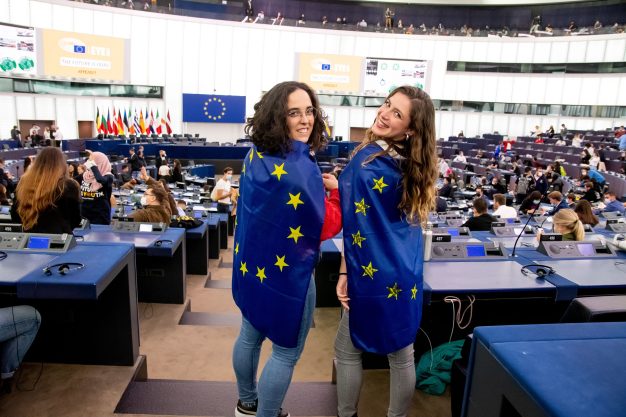
European elections: Future policymakers must make child rights a priority
As voters go to the polls in the European elections, there are calls for policymakers to ensure they make children’s needs a priority.
The United Nations children’s charity UNICEF says that prospective and future Members of the European Parliament (MEPs), decision makers and institutions have a responsibility to invest in policies that will protect children in the long term.
UNICEF has carried out an analysis of the election manifestos of nine European political parties and the policies they propose for children, and while this shows that young people and related policies are largely reflected in the manifestos, children are still receiving less attention than their older (voting-age) peers.
There is also, says the charity, ‘a distinct lack of policy proposals which include any element of child participation’.
Citizens in 27 countries across the European Union are voting from 6-9 June, and at stake is the political make-up of the next European Parliament, the mechanism which links the people with all of the EU institutions and the rules and laws they introduce.
Some 373 million voters are eligible to vote, and their choices will shape the direction of the EU in the coming years, with issues like climate change, the cost of living and immigration all likely to have a big influence on which way people vote. Although youngsters aged 16-17 can vote in five European countries, the vast majority of children in the EU are not able to participate.
‘We hope our analysis triggers discussion’
And it’s the issue of children’s rights in the EU which, according to UNICEF, is under threat from trends like climate change, digital technology and the impact of the COVID pandemic on their health and education. Yet despite making up some 20 per cent of the EU’s population, young people are rarely involved in the key decisions that affect their future.
That’s the view of Bertraind Bainvel, UNICEF Representative to the European Union Institutions and Director of the Partnership Office in Brussels, who added: “We hope that our analysis triggers discussion and thinking on how political parties can do more for children.”
UNICEF has three key messages for Europe’s political parties:
- Champion Children’s Rights – The EU must continue to champion and set high standards for children’s rights in its internal and external actions
- Make the money work for children – European money must work for children, both for children in the EU and globally. Child-friendly policies must be backed up with adequate budget allocations.
- Strengthen governance for children – especially, because children largely cannot vote, their issues and views need to find stronger entry into policy debates. It is important that children are given the chance to participate.
“Much has been achieved for children over the last five years at EU level, however, much remains to be done. Without political will and buy-in from EU decision makers and politicians, progress made for children could stall or even regress,” said Bainvel.
“Investing in policies which promote child rights is vital not just to the wellbeing of children, but also for EU’s cohesion and competitiveness. Moreover, it is key to help cement the ongoing and future support from young generations to the European project.”
Click here for more information on how the European elections work.
Click here for UNICEF’s analysis of the political manifestos and how they relate to young people.




